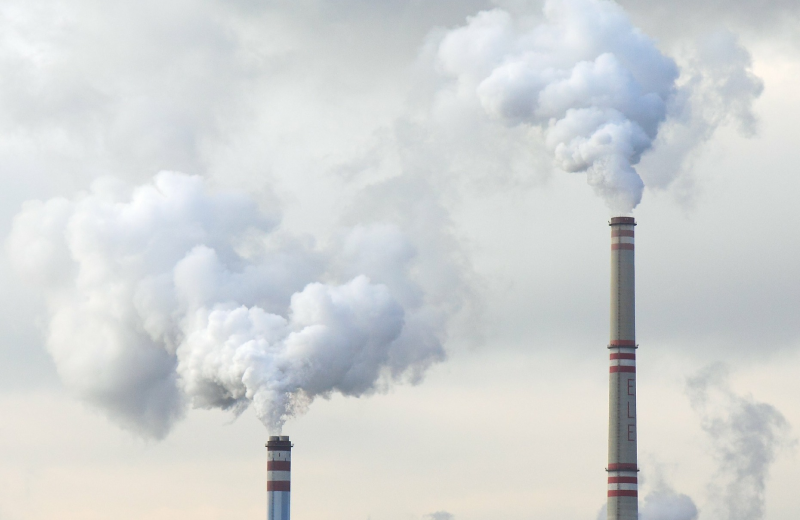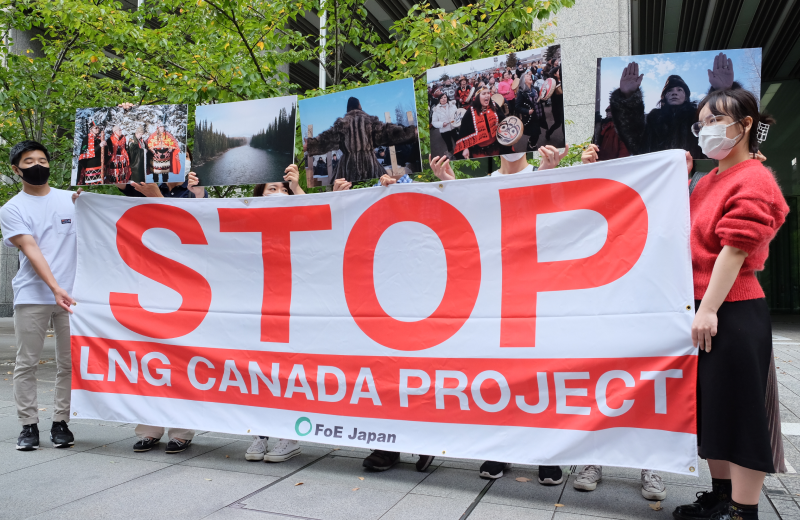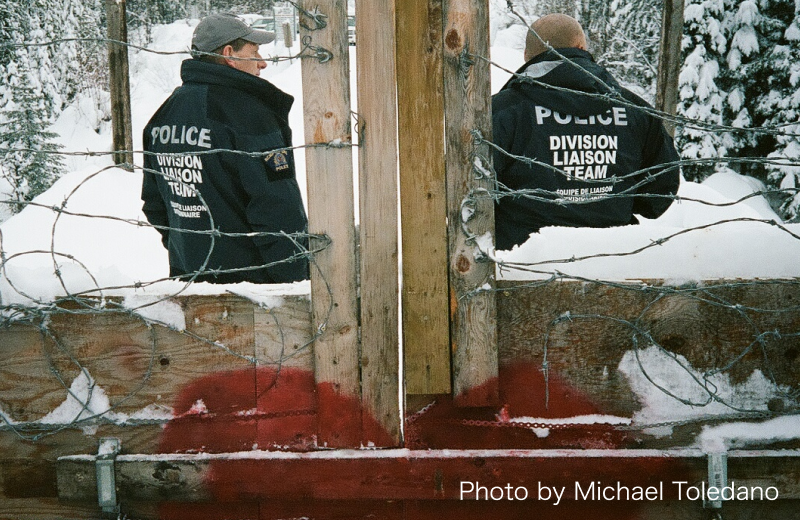

A gas development project is underway in British Columbia, Canada, despite the opposition of Indigenous peoples. Fracking, pipeline projects to transport the gas, liquefying the gas and exporting it - even before these processes have begun, we have already seen many issues thus far.
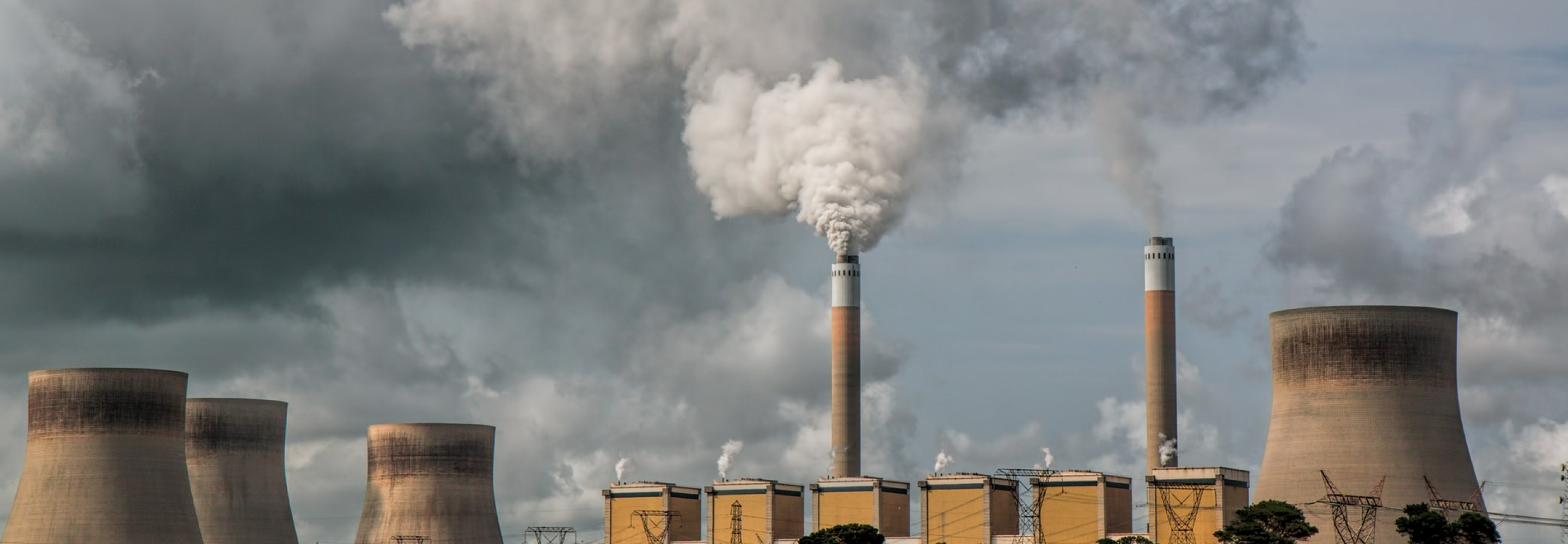
The climate crisis is accelerating around the world. To stop the climate crisis from getting any worse, we need to limit the use of fossil fuels. The International Energy Agency (IEA) has stated that investment in new gas and oil development projects should cease after 2021 in order to achieve the 1.5 degree goal of the Paris Agreement.
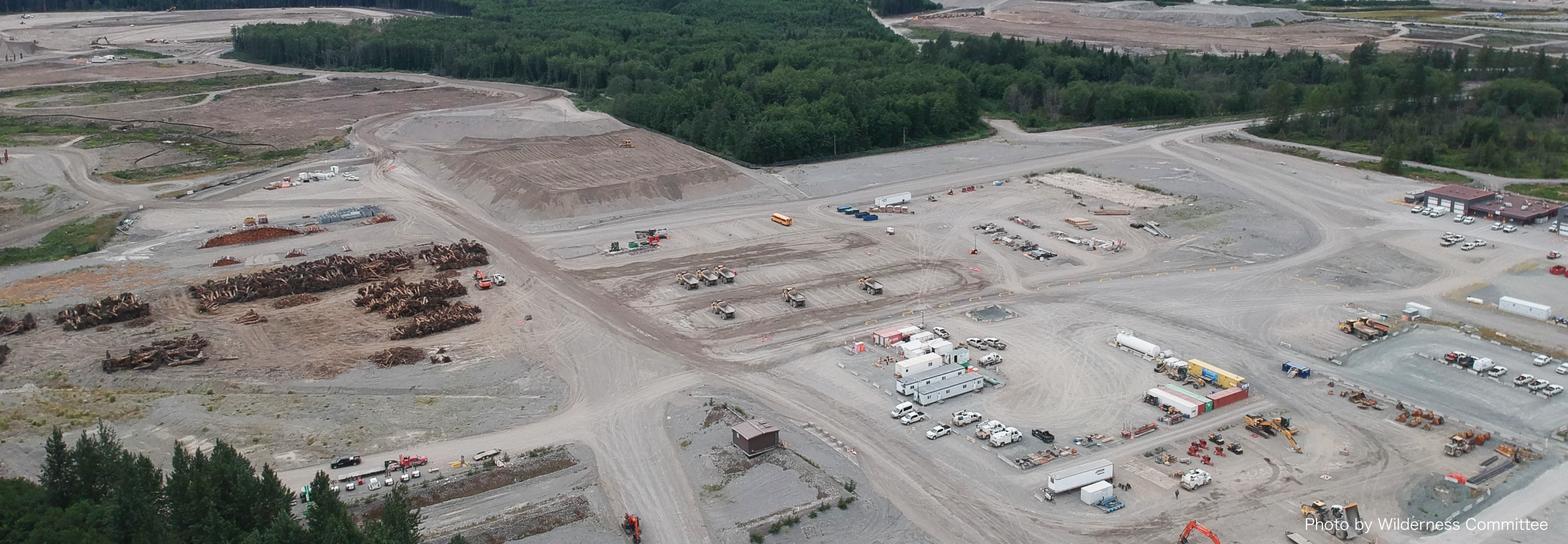
In addition, to meet the Paris Agreement's 1.5 degree target, global greenhouse gas emissions must be net zero by 2050. However, the gas terminal (LNG Canada) and pipeline (Coastal GasLink Pipeline) being built in British Columbia are expected to continue operating after 2050.
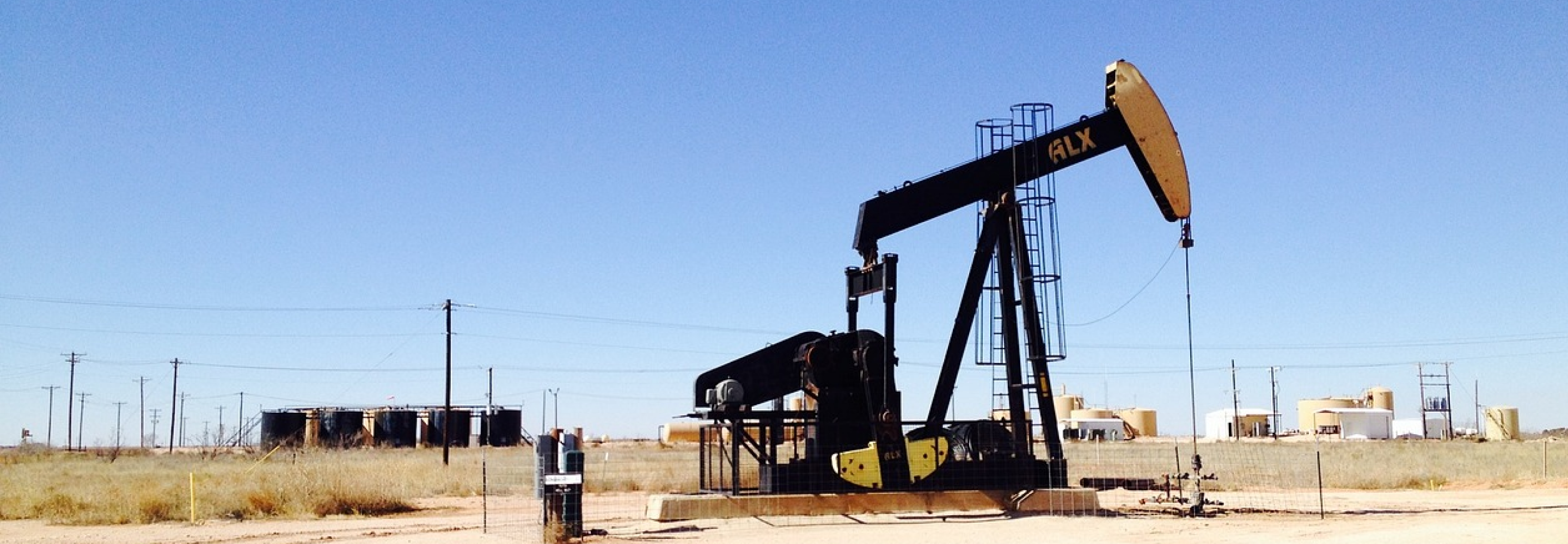
Fracking, a method of gas extraction that is damaging to the enviroment, is being used for this project. Pipeline construction is also underway at water sources traditionally used by Indigenous peoples, resulting in serious environmental destruction.
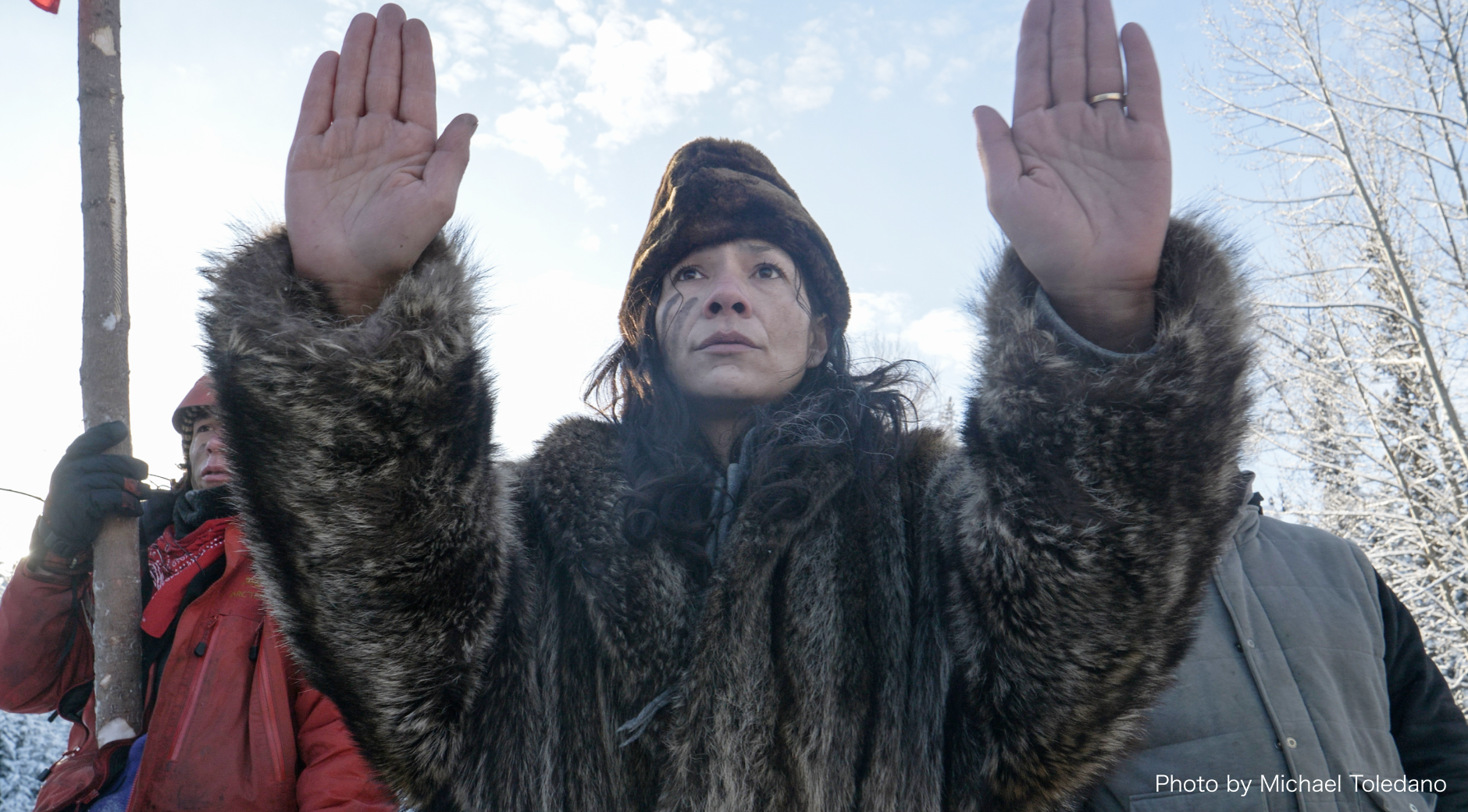
At the site of construction for the pipeline leading to LNG Canada's plant, Indigenous peoples have risen to oppose construction in order to protect their sacred lands and cultures. Construction is proceeding despite the fact that Indigenous peoples have not given consent for this project.
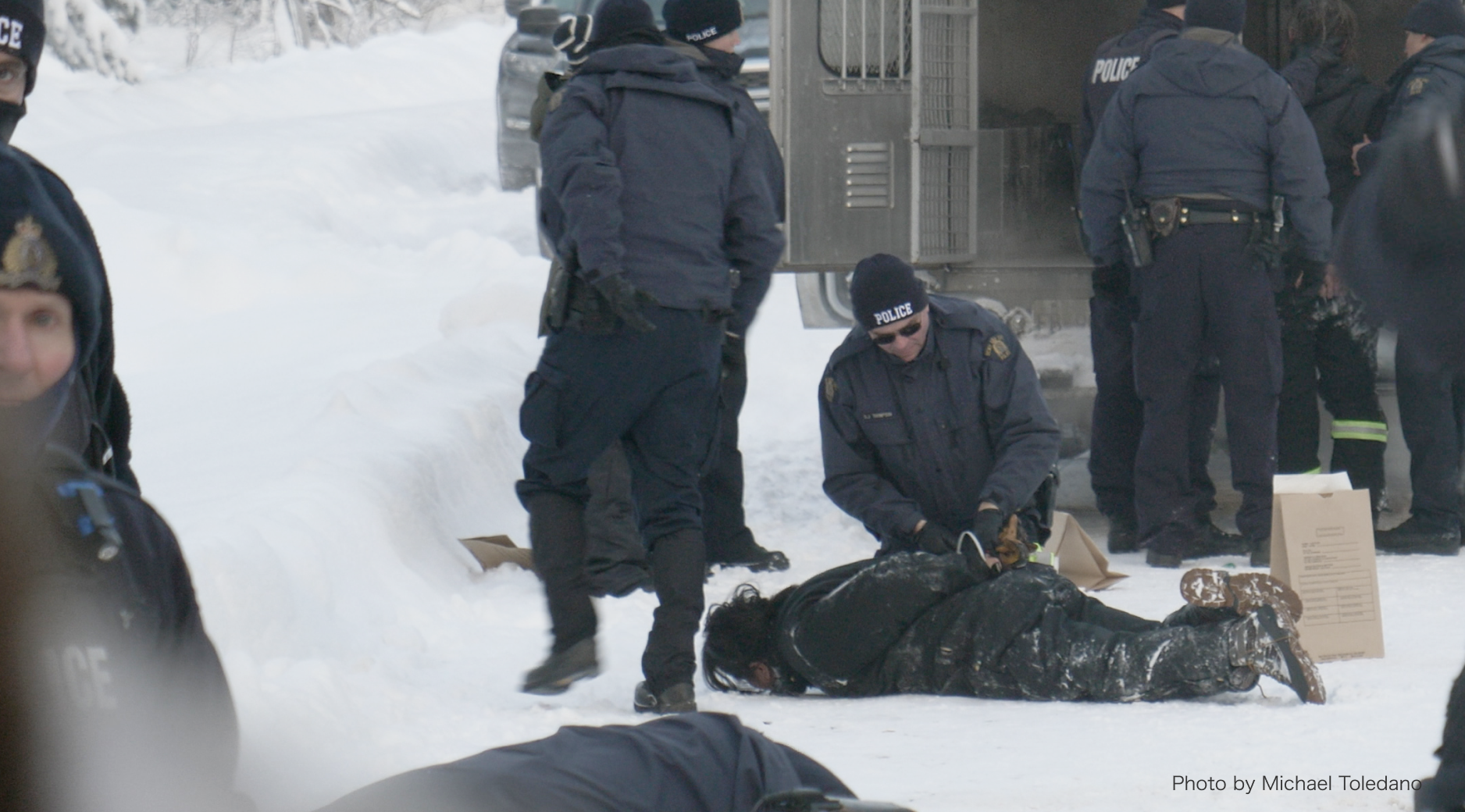
Indigenous peoples and their supporters who oppose the construction, have been violently removed by local police on numerous occasions.
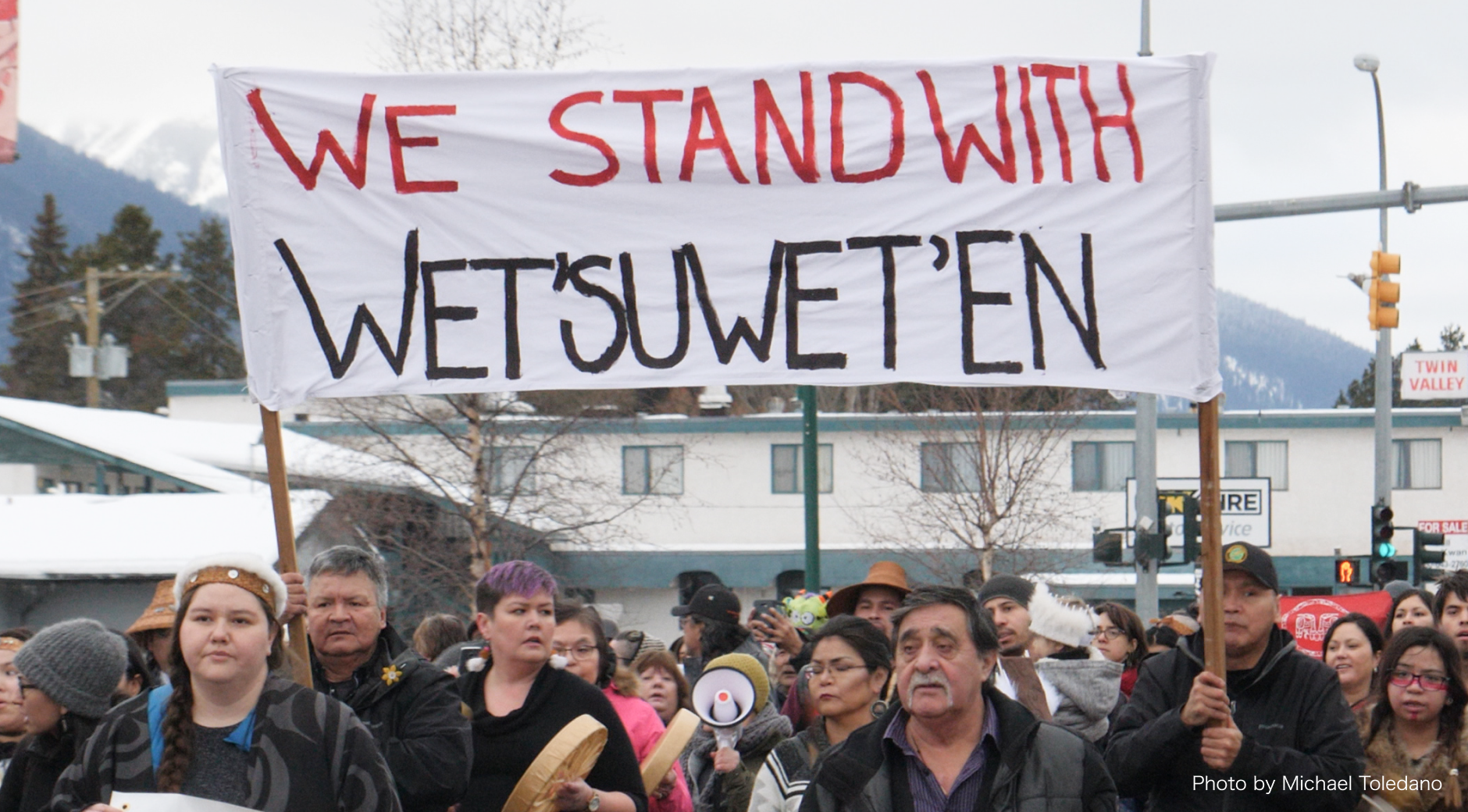
Violations of Indigenous peoples' rights at construction sites are of international concern. The UN Committee on the Elimination of Racial Discrimination has called on the Canadian federal government to halt pipeline construction until "Free, Prior, and Informed Consent (FPIC)" is obtained.
